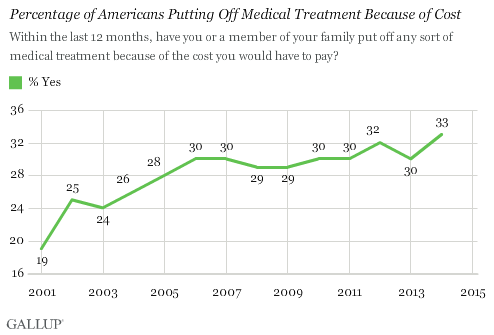The Hill's Elise Viebeck chronicles Obamacare's continued losing streak, major elements of which were predicted months ago. Viebeck's story begins with a mention of the destruction Jonathan Gruber hath wrought, then outlines four categories of forthcoming Obamacare headaches. They include pending legal challenges, the still-simmering threat of Ebola, as well as open Enrollment 2.0 challenges ("the back-end of HealthCare.gov remains partly unfinished"), dramatically scaled-back sign-up projections, and the fallout from the administration's bogus enrollment figures:
A Republican investigation revealed Nov. 20 that ObamaCare enrollment figures at HHS were inflated by roughly 400,000 people after the department miscounted dental plans as medical coverage. The finding was a public relations setback for Burwell and the Obama administration, bringing back partisan strife over enrollment figures that had quieted since the spring. Seeking to contain the fallout, Burwell asked managers at HHS to report suggestions for strengthening the department's "culture of increased transparency, ownership and accountability." Still, Tavenner is expected to receive tough questions about the mistakes when she testifies before House Oversight on Dec. 9. The blunders are also likely to cloud any future enrollment figures the administration seeks to tout for 2015.
Indeed, those "blunders" are likely to cloud the White House's credibility even further. Speaking of which, the editors of Nevada's largest newspaper shredded Obamacare's architects and champions in a Monday editorial, underscoring how rising costs for millions was an entirely intentional and cynically-hidden byproduct of the law:
In one video, Mr. Gruber explains that his real goal was to reduce the tax breaks available to the roughly 170 million Americans who receive employer-sponsored health insurance...Mr. Gruber said individual Americans would feel the real impact of the tax. “We just tax the insurance companies, they pass on higher prices that offsets the tax break we get, it ends up being the same thing,” he said. “It’s a very clever, you know, basic exploitation of the lack of economic understanding of the American voter.” In yet another video, Mr. Gruber explained that the only way to remove the tax preference for employee-sponsored insurance was “by mislabeling it, calling it a tax on insurance plans rather than a tax on people, when we all know it’s a tax on people who hold those insurance plans.” The kicker? While it’s called a “Cadillac” tax, Mr. Gruber said that, over time, the tax will apply to more and more health insurance plans, affecting an increasing number of Americans who don’t have top-flight benefits. If Obamacare hasn’t hurt your wallet yet, it soon will. It’s worth noting that many economists — and most Republicans — spent 2009 warning that the Affordable Care Act was a ruse, that it would increase health insurance costs for most Americans, not cut them.
And therein lies the real story of the Gruber tapes; the economist's sneering arrogance and misplaced glee over dishonest salesmanship is less important than his frank confirmation that critics of the law -- who were attacked as liars and racists -- were correct all along about Obamacare's core, mendacious promises. The Review-Journal's opinion piece ends with this withering line: "Republicans no longer have to make the argument that Obamacare must, at a minimum, be dialed back, and preferably repealed outright. Mr. Gruber has done it for them." The truth hurts. As Obamacare-related costs and premiums continue to follow their upward trajectory for many consumers, Gallup finds that the number of Americans who are putting off seeking medical treatment due to lack of affordability has spiked to a new post-2001 high:

Unaffordable costs help explain the substantial percentage of uninsured Americans who are choosing not to buy coverage through Obamacare, as well as the law's underwhelming enrollment performance. Gallup recently measured overall public support for the law near an all-time low. Which is why Chuck Schumer is coming as close to disavowing the law as any senior Democrat ever has. Jamming the unpopular measure through Congress rather than focusing on jobs was a political mistake that damaged the party, he admitted in a speech last week. Four years ago, he was singing a very different tune on Meet the Press:
"I feel great. There are going to be millions of calls like that. So I predict, David, by November those who voted for health care will find it an asset, those who voted against it will find it a liability."
Two midterm electoral poundings later, he no longer feels quite so "great."
